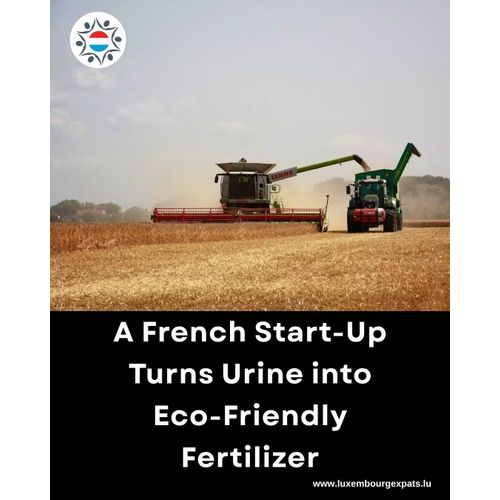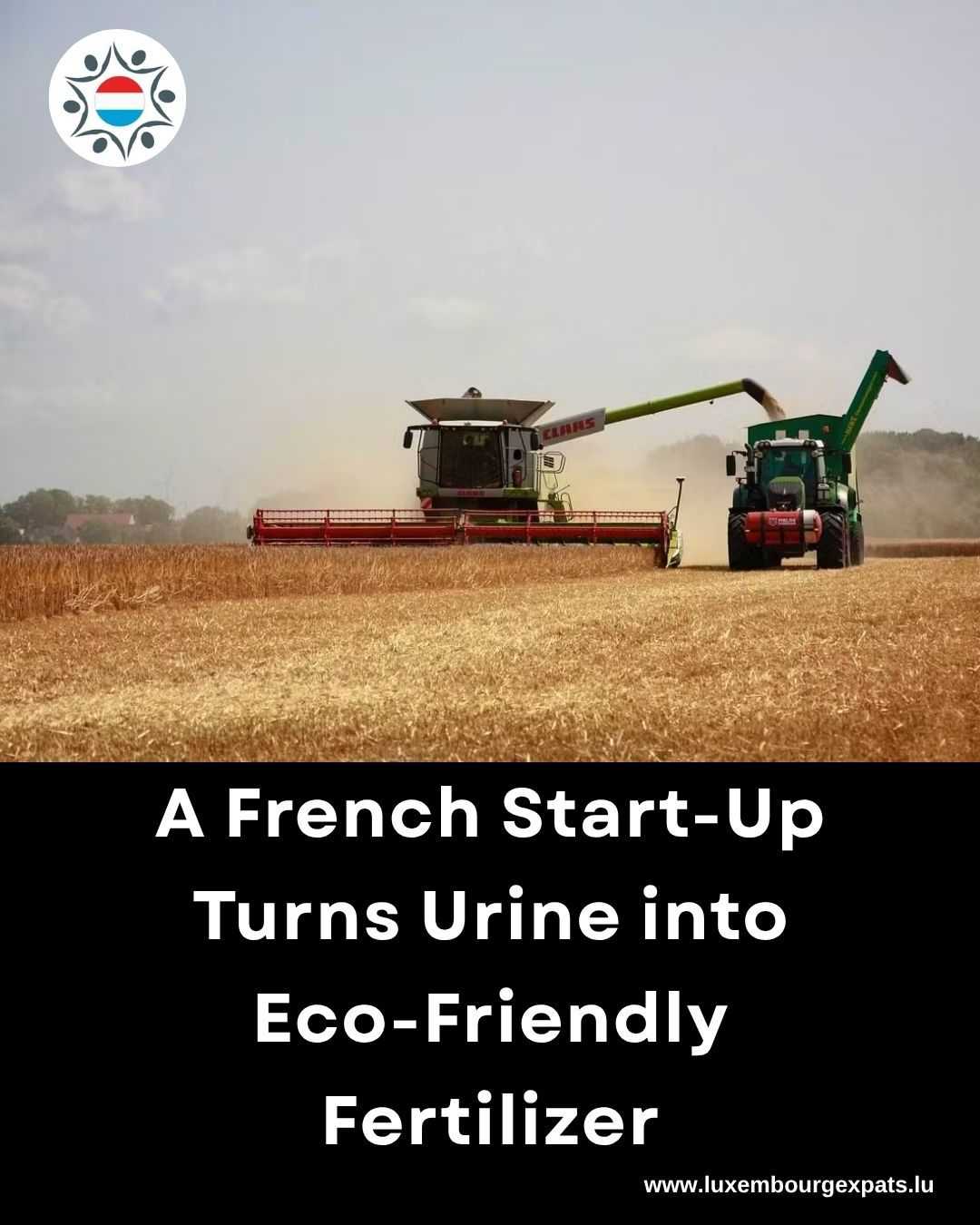A French Start-Up Turns Urine into Eco-Friendly Fertilizer
LuxembourgPosted on 27 October 2025 by TeamA start-up in Marseille is working on an innovative and sustainable idea — transforming human urine into agricultural fertilizer. The approach could significantly reduce the environmental impact and production costs of conventional fertilizers, offering a greener alternative for the future of farming.
A Circular Approach to Agriculture
For the past three years, two engineers at Ehotil, a Marseille-based start-up, have been developing a unique process to stabilize and purify urine so it can be safely and effectively used by plants. Their goal is to make the product odorless, nutrient-rich, and compliant with fertilizer market standards, says the company’s president, Stéphane de Lacroix de Lavalette.
The start-up recently expanded from a small lab to a larger production site in northern Marseille, where it plans to build its first industrial-scale production unit. “We want to demonstrate that this can work beyond the lab — that large-scale production is feasible,” explains Emmanuel Morin, Ehotil’s managing director.
Why Urine?
Experts describe this idea as “logical.” According to Fabien Esculier, an engineer at the University of Créteil who studies the agricultural reuse of human waste, the nutrients found in urine — nitrogen, phosphorus, and potassium — are the same essential elements that plants need for growth.
“When we eat grains or vegetables, our body uses the nutrients but eventually releases them,” he says. “Recovering those nutrients and returning them to the soil completes the natural cycle.”
From Waste to Resource
The process begins with the collection and storage of urine, which is kept for several weeks to sanitize it naturally. The next step, called nitrification, is key to stabilizing the nitrogen compounds. The urine is placed in glass tanks and gradually oxidized, preventing nitrogen loss and unpleasant smells.
The end product is a brownish liquid fertilizer, slightly thicker than water, that resembles traditional fertilizers in texture. Unlike conventional fertilizers — often produced from natural gas (for nitrogen) or mined minerals (for phosphorus and potassium) — this method relies entirely on renewable biological resources.
Reducing Emissions and Pollution
Using human urine as a fertilizer could have a double environmental benefit: it reduces the need for fossil-fuel-based fertilizers and cuts pollution from wastewater. Research shows that around 40% of nitrogen in wastewater currently ends up in rivers, contributing to environmental degradation. Repurposing urine could help capture those nutrients instead of letting them pollute waterways.
Challenges in Collection
Despite the potential, logistical barriers remain. Large-scale urine collection requires special dry or separation toilets, which are rare in cities. For now, Ehotil collects urine from local events, such as music festivals, to run its tests. The company hopes to soon equip public buildings and shopping centers with dry toilets to secure a steady supply source.
A Step Toward Sustainable Fertilizer
Although Ehotil has not yet announced a launch date for its fertilizer, its progress represents a promising shift toward circular and sustainable agriculture. By transforming human waste into valuable nutrients for crops, the start-up demonstrates how innovation and ecology can go hand in hand — turning an everyday resource into a potential solution for the planet’s growing agricultural and environmental challenges.
Read More : Fertilisation durable : une start-up française mise sur l'urine pour les cultures de demain - L'essentiel
Join the community of your own - #1 home-grown LuxExpats app
SignUp Free : luxembourgexpats.lu
I am your contact
Team
Chat









